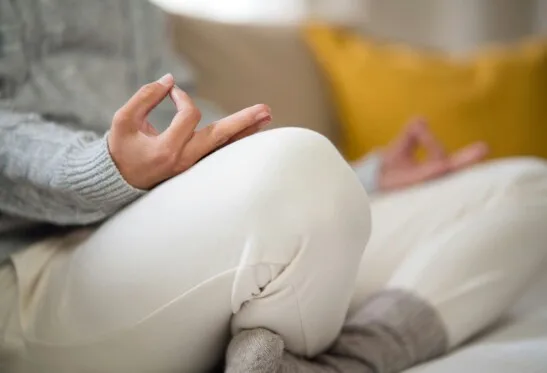By Emma Stessman
For most common maladies, you know where to go to get better. Coming down with the flu? Call your primary care doctor. Have a toothache? Make a dentist appointment. But for the more than 44 million Americans who are dealing with mental health issues like anxiety and depression, when, where, and how to seek help is not so clear-cut.
While many people find solace in self-care strategies like exercise and meditation that have been proven to reduce anxiety and boost mood, there are many situations that require outside help.
“Does the Pilates video and 10 minutes on HeadSpace seem to be doing the trick? Fantastic, you have your answer,” says licensed clinical psychologist Ryan Howes, PhD. “If those don’t seem to have the lasting effect of diminishing your anxiety and depression symptoms to a level that helps you live your healthiest, happiest, and most productive life––consulting with a psychotherapist may be a logical next step.”
RELATED: 5 Science-Backed Ways to Reduce Stress That Aren’t Meditation
Since your mental health is just as important as your physical health when it comes to #livinganutritiouslife, we asked Dr. Howes to explain everything you need to know about when to seek out a therapist and what to expect when you go.
Is Therapy Right for You?
You don’t need an official diagnosis to go to therapy, explains Dr. Howes. It’s a good option for pretty much anyone. In fact, he says, it’s a super common misconception that only people with severe problems and mental health issues can benefit from psychotherapy. While many turn to the practice to cope with a diagnosed mental illness, others use it as a strategy to make a good life even better.
“Therapy is a safe sanctuary away from the world where you can talk with an expert in communication, emotions, and human development to help you make sense of your world, discover who you are and make healthy decisions going forward,” he says.
People typically go to therapy when they’re feeling stuck in an area of their life and can’t find the solution on their own. Maybe you need help breaking yourself out of a cycle of depressive thoughts, for example, or can’t decide if the person you’re dating is actually right for you.

How to Find the Right Therapist
Therapy works best if you have a trusting relationship with your therapist, so finding the right person is key. While you might be able to get a recommendation from a friend or family member, Dr. Howes suggests using search sites like GoodTherapy or Psychology Today, which allow you to find therapists in your area that fit your specifications, from preferred gender to expertise. (They also allow you to search by insurance, which can be super helpful.)
Once you find a handful you think might be a good fit, give them a call or schedule an initial consultation (which many therapists will offer for free) so you can test the waters and see if it’s a good match. Ask them about their experience and how they may be able to help with your specific issue. “At this point, you’re looking for a few things: Does their answer make coherent sense, or are they fumbling around? Are they talking to you on your level, or using fancy and meaningless (to you) jargon? Do you agree that the approach could be helpful and do you feel excited about beginning that process with them?” says Dr. Howes. “This will give you a glimpse into what working with them would look like.”
For example, for treating a mental health issue, like depression, some therapists will focus on treating the symptoms, by challenging negative thoughts or suggesting healthy behaviors, while others will focus their attention on the cause of the issue, which could be an early life event or unresolved trauma. And remember, once you choose a therapist, you’re not making a life-long commitment. If after a few sessions you realize they’re not working for you, try finding someone else.
What to Expect From a Therapy Session
If you’re feeling nervous about the thought of going to therapy, that’s totally normal. It’s not every day that you have deep and personal conversations with a complete stranger. Most therapists will expect you to be anxious to start off, says Dr. Howes, so try not to sweat it.
RELATED: How to Start a “Judgement Detox” to Live Happier
Most of the time, you’ll be doing the majority of the talking. “Opening up is like any other difficult task: it takes hard work and practice,” he says. “After talking about your problems a few times, and establishing a trusting relationship with your therapist, it will get easier.”
The first few sessions with a therapist will revolve around getting to know you and why you’re there. You can expect to talk about your personal history, the reason(s) why you’re there, and what you hope to get out of therapy. As you talk, your therapist should provide you with feedback and guidance and ultimately, he or she should be focused on helping you reach your goals. If at any time you feel like the session is going in the wrong direction or you don’t agree with the methods being used, be vocal about it. “They work for you, after all,” Dr. Howes says.
Keep in mind: therapy won’t provide a quick fix. But if you stick with it, it can be an effective long-term strategy to improve mental health. “Lasting relief can take a long time to achieve,” says Dr. Howes. “[But] you should start noticing changes and feeling more hope after a few sessions.”
(All Photos: Shutterstock)





























